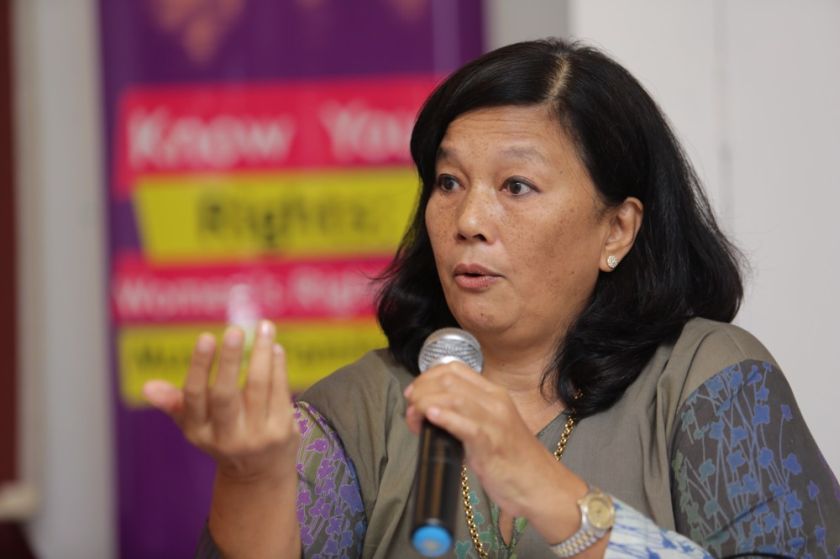KUALA LUMPUR, Feb 24 — Amid Sisters in Islam’s (SIS) challenge against a Selangor fatwa labelling it deviant, the Muslim advocacy group has now asked the civil courts to scrutinise the impact of a new law granting Shariah courts the power to hear judicial reviews.
Lawyer Yusfarizal Yussoff, who represented the Selangor Islamic Religious Council (MAIS), said SIS had raised its concern today over the newly-gazetted provision.
“Of course we have no problem with that, we will check the relevance of Section 66A and what is the impact on the case,” he told reporters after a meeting with the judge and lawyers of the parties involved.
Section 66A in the Administration of the Religion of Islam (State of Selangor) Enactment 2003 revolves around the Shariah High Court’s jurisdiction to grant leave and hear judicial review applications against decisions by MAIS and committees acting under this state law.
Kuala Lumpur High Court judge Datuk Hanipah Farikullah has fixed March 9 for case management, where lawyers are expected to provide him with details on Section 66A’s gazette and effective dates.
Yusfarizal said today, however, that MAIS’s stand will be unaffected regardless of Section 66A, arguing that the Shariah courts should be the place to decide issues related to fatwa or religious edicts.
“But ultimately we maintain our stand that this court - the civil court - has no jurisdiction on the issue of fatwa, because fatwa is a subject matter based on hukum Syarak (Islamic law) and Islamic law falls exclusively under jurisdiction of the Shariah court,” he told reporters.
Majdah Muda, another lawyer acting for MAIS, said there were other methods to challenge a fatwa, which she said could include it being “modified, amended, varied or struck off” by another Fatwa Committee.
Rozana Isa, SIS executive director, said the significance of the matter raised is whether Section 66A “can be applied retrospectively”, noting that the legal provision came about after the group filed its judicial review bid.
“We started a procedure with the civil court. For us, this is where we want to do the judicial review - in the civil court,” she told reporters.
On October 31, 2014, SIS filed for a judicial review of a gazetted fatwa in Selangor that declared the group as “deviants” in Islam due to their alleged religious liberalism and pluralism.
The fatwa also deemed any publications with elements of liberalism and religious pluralism as “haram”, or forbidden to Muslims, and can be seized by religious authorities. It also sought for local Internet regulator the Malaysian Communications and Multimedia Commission (MCMC) to monitor and block social media websites with content that was against Islam.
SIS Forum (Malaysia), the group’s co-founder Zainah Mahfoozah Anwar and Datuk Zaid Ibrahim had named the Selangor Fatwa Committee, the Selangor Islamic Religious Council (MAIS) and the state government as respondents in their application.
SIS Forum (Malaysia) is the company running SIS and its lawyer Malik Imtiaz Sarwar had previously argued in court that it is a secular entity that falls outside of the Islamic judicial system.
On December 10, 2014, then Kuala Lumpur High Court judge Datuk Asmabi Mohamad granted SIS leave for judicial review.
The hearing date for the judicial review has yet to be fixed.



















